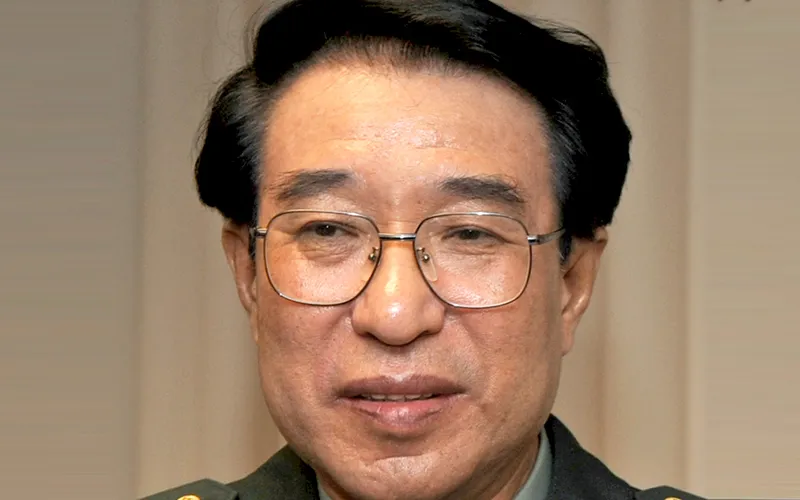Several important sanction regimes have been conceptualised and implemented in the last few decades. While the targets, reasons, and goals of imposing sanctions have differed, the initiators (often Western states) have grappled with the task of securing support for sanction regimes from the non-Western part of the world. Of all the 'southern' or non-Western states, China's support for international sanction regimes has been the most necessary, yet most elusive. As a major opponent of international sanctions, particularly unilateral ones, China has disapproved the use of sanctions as a foreign policy instrument. However, given China's economic standing and external linkages, garnering China's support is often imperative to sustain sanction regimes.
This article reviews China's stand on recent sanctions against Russia while providing perspective through China's past stances on North Korea and Iran. I argue that China has sometimes been cordial to sanction imposers depending on the issue-salience of the sanction, yet its posture towards international sanctions regimes remains cold, especially when they conflict with its national interests. This chilly attitude towards sanctions was apparent during Chinese Premier Li Keqiang's recent visit to Russia, who emphasized engagement rather than isolation of Russia.
China has repeatedly taken tough stands on sanctions in the United Nations Security Council (UNSC). Being a permanent member of the UNSC, it has also used its power to often ameliorate and sometimes veto sanctions. Interestingly, the rising power has many times been critical of sanctions against several outliers, including its neighbor North Korea. While numerous states around the world criticized North Korea after its three nuclear tests, China went relatively easier on the hermit kingdom. Though China adopted an audacious approach after the third test, China's historical disregard towards sanctions has been evident for years, especially in the banking and trans-shipping sectors with North Korea. For instance, Chinese sales of luxury products to North Korea have increased in the last few years, an important area under sanctions. In the North Korean case, China's stance against sanctions has been attributed to its security compulsions. Analysts suggest that China is concerned about regime collapse in North Korea, which would lead to an influx in refugees in its adjoining territories.
Another episode when China refused to lend explicit support to sanctions was the Iranian case. Both unilateral and multilateral sanctions have been imposed on Iran by states and international organizations. In the last few years the US put in place a rigid sanctions regime—primary sanctions that are directly aimed at Iran, and secondary sanctions targeting non-US citizens and companies to prevent them from conducting business with Iran. As secondary sanctions diversified the scope of the sanction regime, a number of state and non-state entities operating within the territories of Iran's partners came under the purview of sanctions. China along with Russia and India vehemently opposed sanctions, particularly the ones constraining its own transactions with Iran. To sustain the regime, adaptions were made to accommodate the interests of China and other states by extending sanction waivers when the secondary targets agreed to decrease their imports from Iran. However several Chinese companies became victims of US sanctions, which made China more critical of unilateral sanctions.
Predictably, China's stand on sanctions imposed on Russia over Ukraine is sympathetic towards the sanctioned regime. China, along with other non-western states, has opposed sanctions on Russia in multilateral forums, arguing along with other BRICS states (Brazil, Russia, India, China and South Africa) that "the escalation of...sanctions and counter-sanctions, and force does not contribute to a sustainable and peaceful solution." Individually, China has again reiterated its aversion to sanctions with its foreign ministry spokesperson Qin Gang explaining, "China has consistently opposed threatening or imposing sanctions. We believe that sanctions are not conducive to an issue's resolution, and may worsen tensions."
While efficacy and impact of sanctions in the North Korean and Iranian cases were often discussed, an unintended consequence of sanctions that wasn't so obvious before, is becoming apparent in the Russian case. Apart from the economic impact of sanctions, this relatively new instrument of statecraft is also becoming known to promote new alliances and indigenous industries. Though sanctions and the perceived cost of sanctions was somewhat effective in curtailing China from engaging with Iran, the Russian case is different. While Western countries attempted to isolate Russia by imposing sanctions, Russia instead looked eastward for partners. The void left by the western pull-out from Russia's economy has been filled by China, which has seized the opportunity and paved the way for engagement across a whole range of issues, including energy, finance, and defense. During Premier Li Keqiang's recent visit to Russia, China and Russia signed comprehensive agreements to promote cooperation. Hence, China's self-interest will always be the determining factor in its calculus when taking a stand on international sanctions.
(The writer is a Research Assistant at Observer Research Foundation, Delhi)
The views expressed above belong to the author(s). ORF research and analyses now available on Telegram! Click here to access our curated content — blogs, longforms and interviews.




 PREV
PREV

